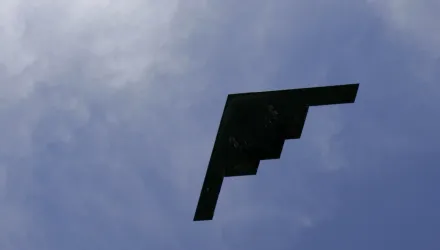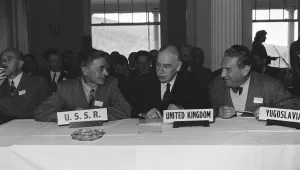International Security is America's leading peer-reviewed journal of security affairs.
Summary
Washington and Bonn pursued a shared strategy of perpetuating U.S. preeminence in European security after the end of the Cold War. As multilingual evidence shows, they did so primarily by shielding the North Atlantic Treaty Organization (NATO) from potential competitors during an era of dramatic change in Europe. In particular, the United States and West Germany made skillful use in 1990 of Soviet leader Mikhail Gorbachev's political weakness and his willingness to prioritize his country's financial woes over security concerns. Washington and Bonn decided "to bribe the Soviets out," as then Deputy National Security Adviser Robert Gates phrased it, and to move NATO eastward. The goal was to establish NATO as the main post-Cold War security institution before alternative structures could arise and potentially diminish U.S. influence. Admirers of a muscular U.S. foreign policy and of NATO will view this strategy as sound; critics will note that it alienated Russia and made NATO's later expansion possible. Either way, this finding challenges the scholarly view that the United States sought to integrate its former superpower enemy into postconflict structures after the end of the Cold War.
Sarotte, Mary . “Perpetuating U.S. Preeminence: The 1990 Deals to “Bribe the Soviets Out” and Move NATO In.” Summer 2010
The full text of this publication is available in the link below.





